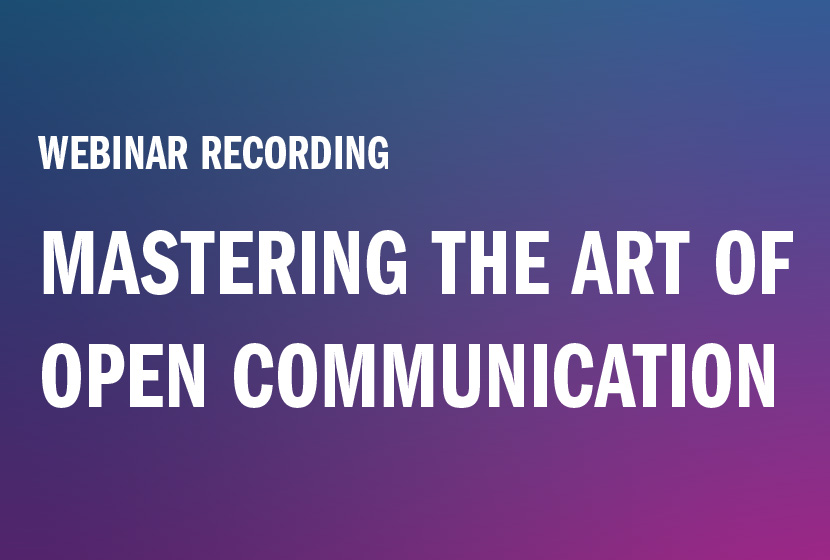

Human skills are also known as “soft” or “interpersonal” skills, as they focus on the interpersonal aspects of your job, like communication, trust, problem-solving and creative thinking. In a world where the market is oversaturated, and every competitor is boasting the newest and best features, human skills are where you can set yourself apart.
Human skills enables leaders to not only better understand and engage with their workforce but also better represent themselves as leaders. The authentic relationships that follow as a natural result of leading with human skills ultimately stimulate better engagement, retention and performance. In fact, recent research from Harvard University shows that 85% of business success stems from well-developed soft skills, like communication. Any business hoping to drive success needs to invest resources in developing and strengthening their leaders’ human skills.
Whether you know it or not, you already have a leadership brand. Your leadership brand is essentially your professional reputation. It’s a combination of your impressions, successes, communications and how you present yourself on the job. When it comes to workplace interactions, your human skills are just as important as your hard skills—the skills that drive analytic, financial and reportable results.
Incorporating human skills into your leadership brand gives you the power to:
You’ve likely already started putting your human skills to use as a leader, but if you’re looking to improve, these tips provide a good starting point.
If you know yourself, growth becomes that much easier. The same is true of skill development in the workplace. Think about what matters most to you in your career—maybe it’s important to you to connect with people on the human level, or perhaps you want to drive more creative decision-making in the boardroom. Decide what you value, then explore the human skills associated with those values and go from there.
While your personal values can be different from your company’s values, there should ideally be some overlap. Consider what drew you to your position and what you appreciate most about how your organization operates. You can even look at your brand’s mission statement and values and compare how yours align.
Knowing what you value and putting those values into practice are two different skills, but when you develop both, you can unlock more opportunities to build relationships grounded in authenticity. For example, if your goal is to connect with your staff more, you should take action to do so. Perhaps that looks like setting up events or scheduling regular one-on-one check-ins. If you want to facilitate creativity, start by coming up with your own innovations and sharing them to invite feedback.
When you lead with your values, you show your team that you recognize and make room for the human-side of work.
When you facilitate open and transparent relationships with your staff, you boost their confidence in you and the brand itself. In a professional context, focusing on your interpersonal relationships can include scheduling regular meetings and check-ins, making time to listen to concerns or successes in the workplace or helping your staff achieve new goals.
The great news about human skills is that anyone can work on them and ask for advice on how to improve. In a situation like this, your staff can be invaluable in teaching you how to improve yourself in ways that benefit everyone. If you are truly improving your workplace relationships, asking for feedback can be a natural part of deepening the existing trust and respect between you and your staff—and it can show you exactly which areas you need to improve on next.
A thriving leadership brand is the result of hard work and dedication, and at The Center for Leadership Studies (CLS), we make it easier for you to understand yourself and your leadership goals so you can lead with authenticity and purpose.
The Your Leadership Brand course will teach you how to become a more impactful leader by developing and incorporating more human-centered skills into your brand. Contact us today to learn more.